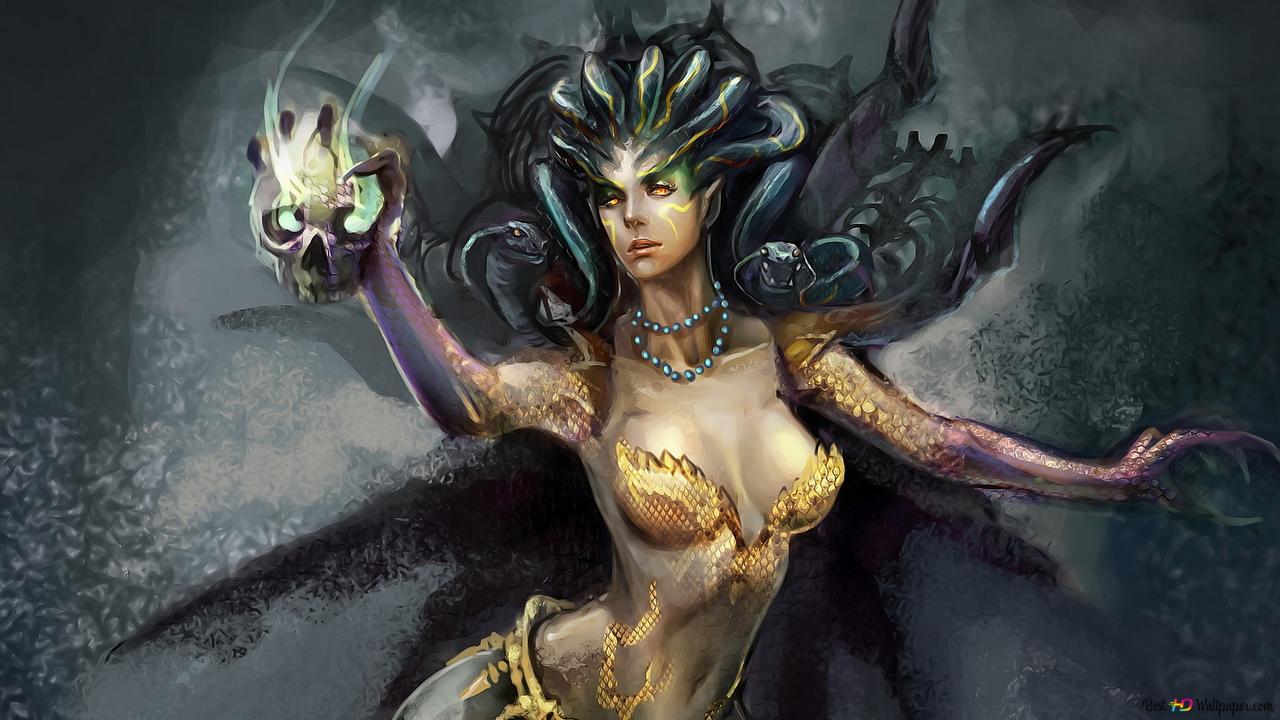
when Horror Yearbook – Medusa has long been portrayed as a fearsome monster, but her original story tells a different tale entirely. In ancient mythology, Medusa was not born with snakes for hair or a deadly gaze. She started as a beautiful maiden devoted to the goddess Athena. Her beauty was so striking that it attracted the attention of many, including the sea god Poseidon. The turning point in her story was not caused by evil, but by violation and injustice. Medusa’s transformation into a Gorgon came after a traumatic event in Athena’s temple. Rather than being protected, she was punished. This beginning shifts the perspective on her identity from a terrifying creature into a deeply wronged woman. Understanding the root of Medusa’s myth reveals themes of power, betrayal, and resilience that are often glossed over in modern retellings.
In many versions of the myth, Medusa is assaulted by Poseidon in the sacred temple of Athena. Instead of confronting the offender, Athena directs her wrath toward Medusa. She transforms the young woman into a Gorgon, giving her snakes for hair and the power to turn others into stone. This punishment represents a complex mix of divine pride and societal expectations. Medusa’s beauty, once celebrated, becomes the source of her curse. The story changes her from a revered figure into an outcast. When people hear about Medusa, they often forget that she never chose to be what she became. The tragedy lies in how her fate was sealed not by her own doing but by the actions of gods. This twist in her tale makes one wonder how myths often reflect injustice, especially toward women. Medusa is remembered for her curse, not her pain.
“Read about: Hidden Bones and Forbidden Truths: Did Real Giants Once Walk the Earth?”
Medusa’s story reaches its climax with the hero Perseus. Tasked with bringing back her head, Perseus embarks on a dangerous journey. With the help of divine tools, including a mirrored shield and a magical sword, he approaches Medusa while she sleeps. Without a chance to defend herself, she is slain. Her head, which retains its petrifying power, is used by Perseus as a weapon before being offered to Athena. This act is often hailed as a heroic victory, yet it also marks the end of a figure who was already deeply wronged. Her death is celebrated, but few recognize the injustice behind it. Medusa was not a threat by choice. She was a woman shaped by forces beyond her control. Her fall symbolizes how even in myth, misunderstood victims can be turned into monsters by the voices of the powerful.
“Read more: They’re Small But Mighty: Why Micronutrients Could Be the Key to Your Health!”
Over time, Medusa’s image has been reinterpreted in many ways. In ancient art, her face was used as a protective symbol on shields and armor. In modern times, she has been reclaimed as a symbol of feminine rage and empowerment. Her story resonates with those who have experienced betrayal and injustice. Artists and writers now explore her story with new eyes, giving voice to the pain she endured. Medusa has evolved from a cautionary tale into a symbol of survival. Her snakes no longer represent horror but transformation. Her gaze is no longer feared but honored. By revisiting her myth through a more compassionate lens, Medusa is no longer defined solely by her curse. She becomes a figure of strength, a woman who was broken by the gods yet remembered through the ages. This reinterpretation offers healing not only to her story but also to the audience.
In a world that continues to examine justice and inequality, Medusa’s myth holds powerful relevance. Her tale speaks to how society often punishes victims while protecting the powerful. It shows how women are sometimes blamed for the violence done to them. Medusa’s story becomes more than mythology. It becomes a mirror for how cultures treat truth and power. By revisiting her tale, we confront deep-rooted narratives that continue to shape perceptions. Schools teach of heroes like Perseus, but rarely question whether their glory comes at the expense of others. Medusa’s legacy asks us to look beyond the surface. It invites reflection on how stories are told and who gets to tell them. When myths are retold with empathy and insight, they evolve into tools for justice. Medusa may have been silenced once, but her voice continues to rise.